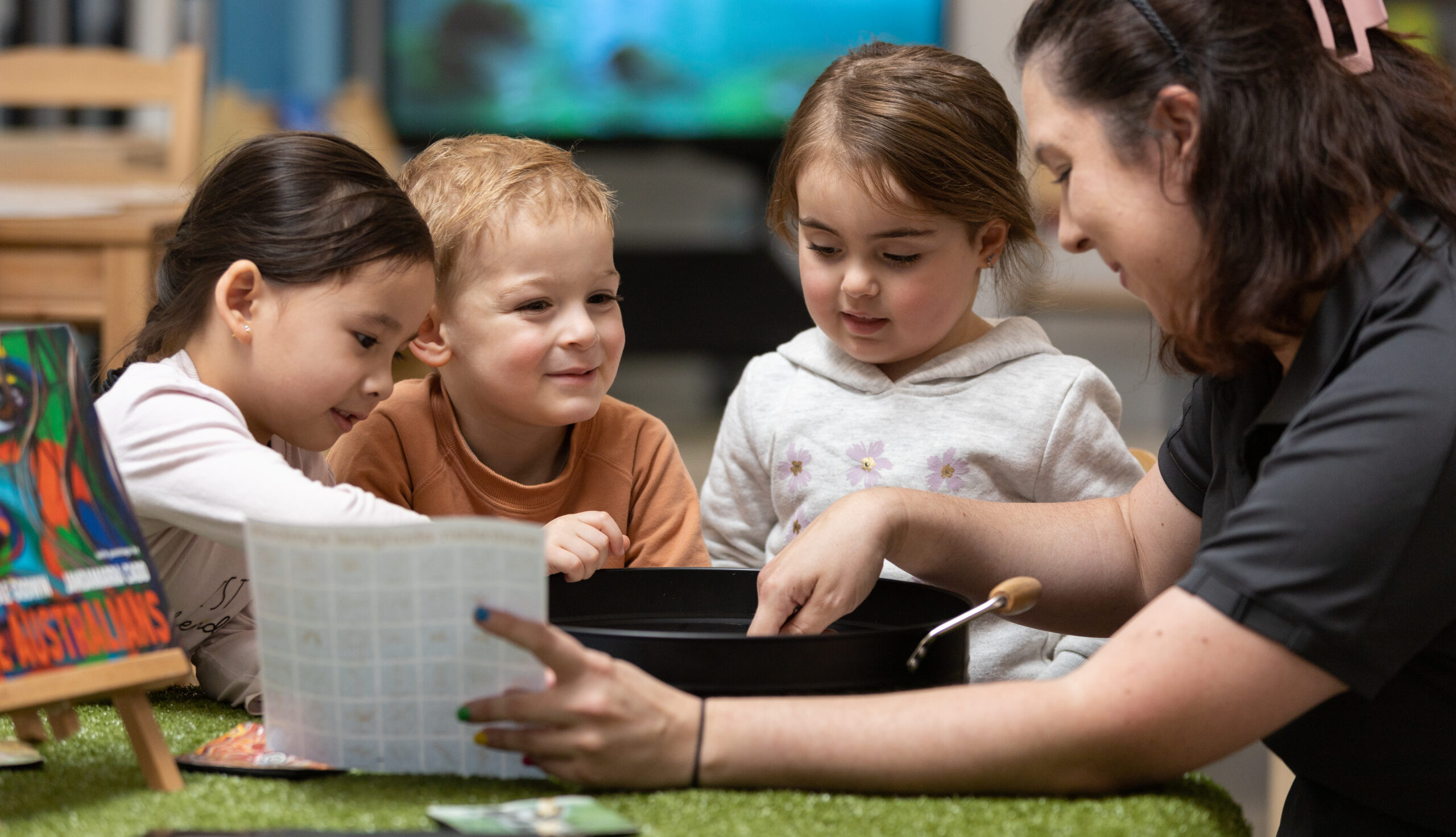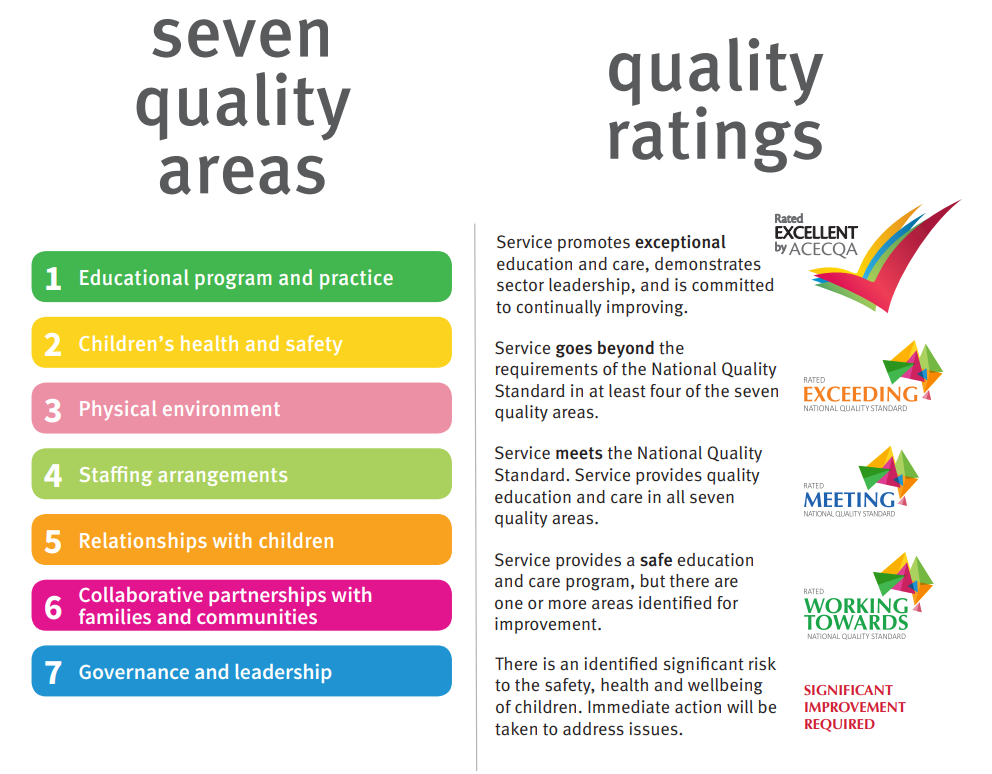
Welcome to the fifth instalment of our National Quality Standards seven-part series, where we provide an in-depth look into the seven quality areas benchmarked against the Australian Children's Education and Care Quality Authority (ACECQA) standards.

Quality Area 5 of the National Quality Standard focuses on educators developing responsive, warm, trusting, and respectful relationships with children and young people that promote wellbeing, self-esteem, security, and belonging. These relationships encourage children to explore the environment and engage in play and learning.
National Quality Standard – Quality Area 5 Relationships with Children
Quality Area 5 has two Standards that focus on relationships between educators and children and between children and their peers. These Standards are crucial to delivering quality outcomes for children under the National Quality Framework because supportive and respectful relationships enable children to:
- Develop their confidence and a strong and positive sense of identity
- Develop practical communication skills and the ability to express themselves effectively
- Participate in collaborative learning and develop and build meaningful relationships and friendships.
- Regulate and manage their behaviour and emotions and learn to negotiate complex social situations and relationships.
Standard One – Relationships Between Educators and Children
When children and young people experience nurturing, respectful, reciprocal relationships with educators, they understand themselves as competent, capable, and respected. Consistent emotional support contributes to children developing a strong sense of wellbeing and belonging. Relationships are the foundation for constructing identity and help shape children's thinking about who they are, how they belong and what influences them. Relational pedagogy underpins interactions between educators, children, and their families and is key to children building a positive sense of self-worth (Early Years Learning Framework; Framework for School Age Care).
Constructive everyday interactions and shared learning opportunities form the basis of equitable, respectful and reciprocal relationships between educators and children. Educators who actively engage in children's learning and share decision-making with them use their everyday interactions during play, rituals, routines and ongoing projects to stimulate children's thinking and enrich and extend their learning, development and wellbeing.
These relationships provide a solid foundation for guiding and supporting children as they develop the self-confidence and skills to manage their emotions and behaviour, make decisions, and relate positively and effectively to others.
Standard Two: Relationships Between Children
When educators create environments in which children experience mutually enjoyable, caring and respectful relationships with people and the environment, children and young people respond accordingly (Early Years Learning Framework; Framework for School Age Care). Positive relationships give children the confidence and agency to explore and learn about their world. As their relationships become more complex and far-reaching over time, children's interactions with others also help them to extend their knowledge, thinking and ability to apply what they already know in new and unfamiliar contexts. Developing effective relationships with others is a key part of children's social development, and these relationships also provide a base for children's learning.
An important aspect of children's 'belonging, being and becoming' involves learning how their behaviours and actions affect themselves and others. By making sensible choices about their behaviour, children develop the skills to regulate their emotions and actions independently and understand the benefits of positive behaviour. When children have opportunities to contribute to decisions and participate collaboratively with others in everyday settings, they learn to live interdependently and make informed choices (Early Years Learning Framework; Framework for School Age Care). The service should ensure that all children are supported in developing the skills, learning dispositions, and understandings they need to interact with others with care, empathy, and respect.
